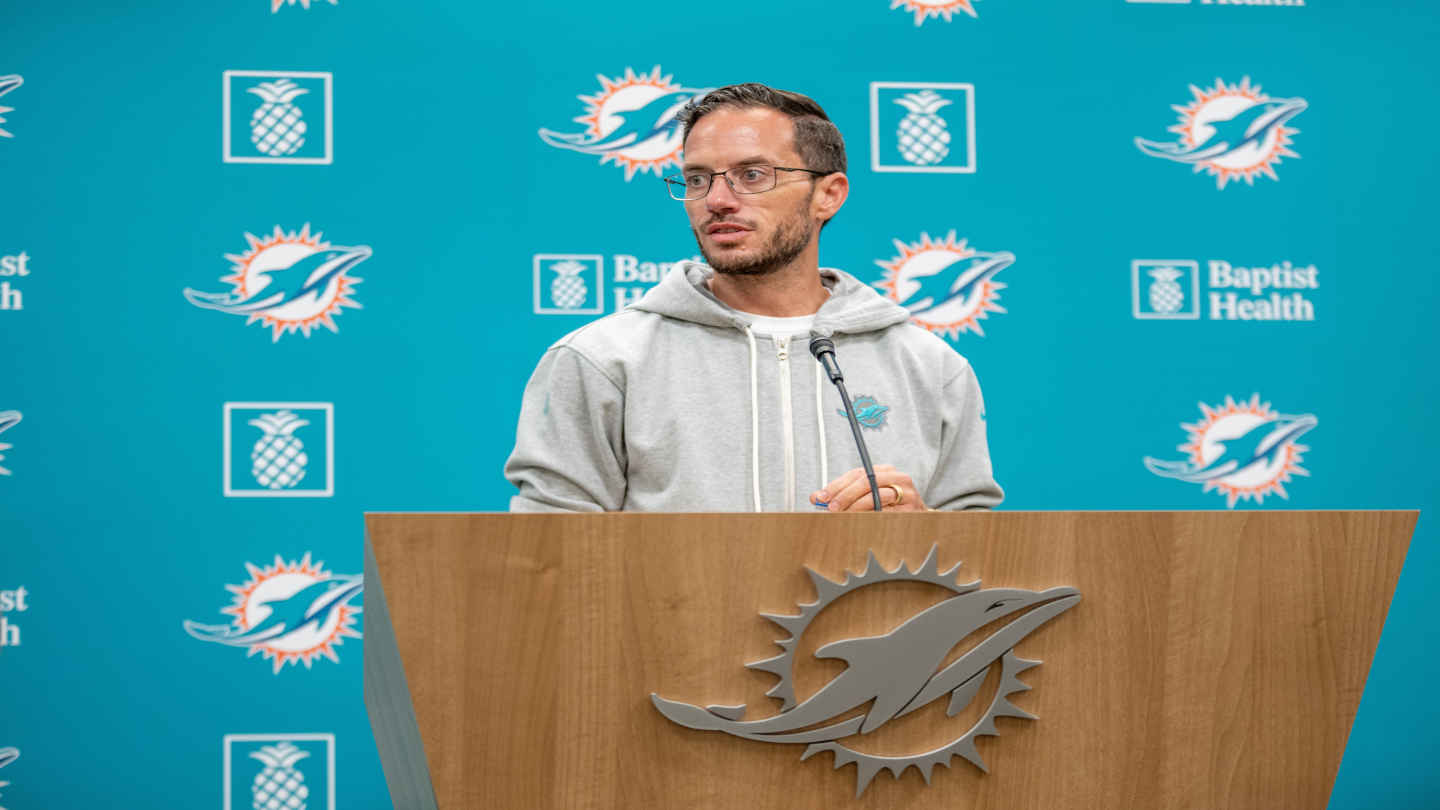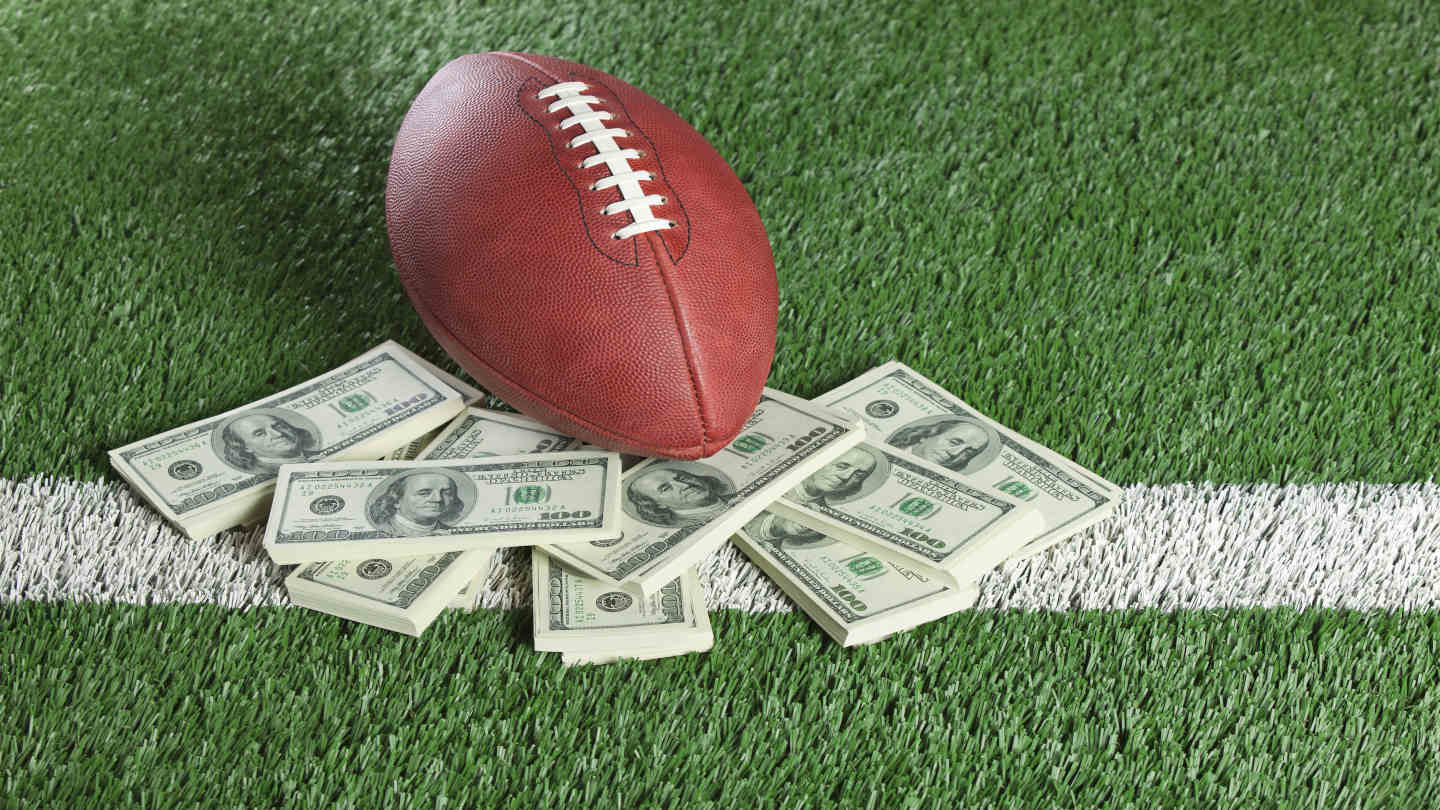Top 10 Oldest Quarterbacks To Win Super Bowl

23 minutes
Last Updated: May 25, 2024
The top 10 oldest quarterbacks to win a Super Bowl is an ever-changing list. Each admission to the list sets the bar higher. And a lot of factors need to align for a player to be even considered for it. That’s why it’s mostly composed of all-time greats who happened to be the oldest QB to win a Superbowl at the time.
As the NFL fanbase generational gap continues to increase, it’s important to look back and remember the greatest players in history. Learning about the history of the game is as important as knowing all of the NFL betting tips before you place your first wager. If you’re wondering what the most profitable sports to bet on are or if Golf is a sport, we got you covered.
But the Superbowl is the most important event of the NFL season that continues to shatter NFL Superbowl AD revenue records. So if you want to know who is the oldest QB to win Super Bowl, we have the answer right here.
As of 2024, Tom Brady is the oldest quarterback ever to win a Super Bowl championship. Tom Brady was 43 years and 188 days of age on February 7, 2021, when he led the Tampa Bay Buccaneers to a 31-9 win in Super Bowl 55 over the Kansas City Chiefs.
To top it off, Tom Brady was also awarded with the SuperBowl MVP trophy for his performance. This made him the oldest Super Bowl MVP in NFL history, another achievement to Tom Brady’s magnificent portfolio. It was his fifth Super Bowl MVP which is also an NFL record. Tom Brady becoming the oldest QB to win a SuperBowl was a fitting end to a career with a fairytale beginning with his first Super Bowl win.
These are the oldest NFL quarterbacks to become Super Bowl winners. They managed to survive thousands of hits to be able to participate in one final game of high stakes. Some barely stepped on the field, while others did everything they could to help their team win. Who is the oldest QB to win Super Bowl you ask? Let’s find out.
Tom Brady (43 years and 188 days)
- Career Stats: Games Played (335), Total Yards (89 214), Total Touchdowns (649), Total Interceptions (212), Pass Completion Percentage (64.3%);
- NFL Teams: New England Patriots (2000-2019), Tampa Bay Buccaneers (2020-2022)
- Accolades: 7x Super Bowl Champion, 5x Super Bowl MVP, 3x NFL MVP, 2× NFL Offensive Player of the Year, 2009 NFL Comeback Player of the Year,
3x First-team All-Pro, 3x Second-team All-Pro, 15x Pro Bowl, 5x NFL passing touchdowns leader, 4x NFL passing yards leader
What is there to be said about Tom Brady that isn’t already a part of the NFL history books? Tom Brady started climbing on this list of quarterbacks to win Super Bowl back in 2015 when he beat the Seattle Seahawks, and he’s on upped himself many times since then. Brady officially became the oldest QB to win a superbowl with his Super Bowl 53 win against the Los Angeles Rams.
But in usual Brady fashion, he couldn’t resist challenging himself once more. After taking a year off in retirement, Brady signed with the Tampa Bay Buccaneers. Joining a team that hadn’t reached the postseason since 2007 and had not won a playoff game since 2002, sure was a way of betting on yourself and your legacy.
He led the Buccaneers to an 11-5 record, posting 4,633 passing yards, 40 passing touchdowns, and 12 interceptions en route to a wild-card spot in the playoffs. In a Wild Card Round game 31 to 23 win against the Washington Commanders, Brady threw for 381 yards and two touchdowns to become the oldest NFL player to throw a touchdown pass in NFL postseason history.
HOW ABOUT THAT?! #SBLV@TomBrady | @Buccaneers pic.twitter.com/dmIlM7jWxc
— NFL (@NFL) February 8, 2021
The following Divisional round game saw the final and most iconic Tom Brady and Drew Brees matchup of their illustrious careers. As the two all-time leaders in career touchdown passes and career passing yards faced off, Brady came out on top with 199 yards, two touchdowns, and a rushing touchdown in the 30–20 win over the Saints.
Drew Brees retired after that game and season, while Tom Brady was preparing for his NFL-record 14th Conference Championship game. There he faced another familiar foe in Aaron Rodgers and the Green Bay Packers. In the first and final postseason matchup of the two statistically most efficient quarterbacks of all time, Brady came away with a 31 to 26 win at Lambeau Field. This gave Brady his record-extending tenth Super Bowl appearance and made him the fourth quarterback to lead two different teams to the Super Bowl.
Super Bowl 55 was the first title game where both starting quarterbacks were NFL and Super Bowl MVP award winners. In fitting fashion, Tom Brady’s matchup against Patrick Mahomes was hailed as a passing of the torch. If Michael Jordan and LeBron James had faced off in the NBA Finals. Indeed, Patrick Mahomes was the youngest NFL QB to win the SuperBowl.
But Brady quickly ruined the notion, throwing 201 yards and three touchdowns in Tampa Bay’s 31–9 win over the Kansas City Chiefs. At 43 years and 188 days of age, this Super Bowl 55 win made Tom Brady the undisputed oldest quarterback to win a Superbowl.
Payton Manning (39 years 320 days)
- Career Stats: Games Played (266), Total Yards (71 940), Total Touchdowns (539), Total Interceptions (251), Pass Completion Percentage (65.3%);
- NFL Teams: Indianapolis Colts (1998-2011), Denver Broncos (2011-2015)
- Accolades: 5x NFL MVP, 2x Super Bowl Champion, 1x Super Bowl MVP, 7x First-team All-Pro, 3x Second-team All-Pro, 14x Pro Bowl selections, multi-year NFL leader in multiple pass categories
At number 2 on our oldest quarterback to win a Superbowl list, we have Payton Manning. Like numerous times in his career prior, “the Sheriff” isn’t a stranger to this situation. Being a second fiddle to Tom Brady is not a knock against anyone, given that you’re going up against the greatest to ever do it.
Payton rode off into the sunset in spectacular fashion, by winning Super Bowl 50 in his last career game before retirement. Although he barely could hold his body together, “the Sheriff” had enough gas in the tank on February 7, 2016, to enable the superb Broncos defense to carry him. At the tender age of 39 years and 320 days, Manning was far from the fastest NFL player, but his game sense got him through.
Payton Manning’s last game
Looking at the end of the barrel against the reigning 2015 NFL MVP Cam Newton, Payton managed to resist the onslaught from the 2015 Carolina Panthers, connecting on 13 of his 23 passing attempts. This 24-10 Super Bowl 50 win made him the oldest QB to win a Superbowl at the time, a record that would be broken by Tom Brady multiple times since.
Despite being sacked an NFL Super Bowl record-tying 5 times, Payton had just one turnover, thanks to an amazing one-hand interception by defensive end Kony Ealy. He probably had one of the best individual performances in Super Bowl history that no one will remember with 3 sacks, 1 interception, and a forced fumble. That’s a top 10 NFL linebacker performance from a defensive end on the biggest stage.
Peyton Manning. Tom Brady.
The only two starting quarterbacks to lead multiple teams to a #SuperBowl win. pic.twitter.com/sytpB5WKSl
— Sunday Night Football on NBC (@SNFonNBC) February 8, 2021
While we’re giving Ealy’s flowers, let’s not gloss over Payton’s spectacular career spanning nearly 2 decades. The first pick in the 1998 NFL draft served as the main catalyst behind the resurgence of the struggling Indianapolis Colts franchise. He led them to 11 playoff appearances, eight division titles, three AFC Championship Games, and two Super Bowl appearances, one of which he won in Super Bowl 41.
There’s a lot to be said about Peyton’s postseason struggles, especially prior to his first Super Bowl win. But it’s also fair to assume those teams wouldn’t be there in the first place without Manning’s regular-season brilliance. Retiring with 71,940 career yards and 539 touchdowns is something only 2 other QBs in NFL history can brag about. And only one of them ranks among the oldest quarterbacks to win Super Bowl, so that’s already rarified air.
Earl Morrall (39 years 241 days)
- Career Stats: Games Played (255), Total Yards (20 809), Total Touchdowns (161), Total Interceptions (148), Pass Completion Percentage (51.3%);
- NFL Teams: San Francisco 49ers (1956), Pittsburgh Steelers (1957–1958), Detroit Lions (1958–1964), New York Giants (1965–1967), Baltimore Colts (1968–1971), Miami Dolphins (1972–1976)
- Accolades: 3× Super Bowl champion (V, VII, VIII), NFL champion (1968), NFL Most Valuable Player (1968), NFL Comeback Player of the Year (1972), 2× First-team All-Pro (1968, 1972), 2× Pro Bowl (1957, 1968), NFL passer rating leader (1972), NFL passing touchdowns leader (1968)
The third entry on our oldest quarterback to win a Superbowl list is Earl Morrall. Many NFL fans might be unfamiliar with the greatest backup quarterback in NFL history. But he’s a 4 time NFL champion and former NFL MVP for a reason. Making him one of the most unlikely admissions to the NFL QBs with the most Superbowls list.
Most notably he served as a backup for two Hall of Fame quarterbacks in Johnny Unitas and Bob Griese, while helping the Miami Dolphins complete the only perfect season in NFL history.
On January 13, 1974, Earl Morrall was 39 years and 241 days of age when the Miami Dolphins won SuperBowl 8. This made him the oldest QB to win a Superbowl at the time, a record that would stand for 43 years until Peyton Manning overtook him in 2016.
Earl Morrall did not play a single snap in the championship game in which his Miami Dolphins thrashed the Minnesota Vikings with a 24-7 score. In fact, he threw just 10 passes that season, connecting on 5 of them. But he did more than enough the year prior to help Miami achieve the perfect NFL season.
Earl Morrall #Dolphins pic.twitter.com/d0iynRLHSR
— Old Time Football 🏈 (@Ol_TimeFootball) June 16, 2023
In 1972, just 5 games into the season Miami Dolphins starting quarterback Bob Griese was hurt during the October 15 win against the San Diego Chargers. This presented a major opportunity for Earl Morrall, who stepped in and threw for 86 yards with two touchdowns, connecting on 8 of his 10 passing attempts.
Earl Morrall would go on to start the nine remaining games of the season, winning all of them while throwing 11 touchdowns and 7 interceptions for 1,360 yards. There wasn’t much pressure being put on Earl Morrall, with NFL coach with the most wins Don Shula by his side, directing a potent rushing attack.
He played throughout the playoffs, starting the AFC championship game against the Pittsburgh Steelers before being subbed out by Bob Griese in the second half. He connected on 7 of his 11 passing attempts for 51 yards while throwing a touchdown and an interception in that first half. In total, Earl Morrall played 11 games that season, winning them all, and being an instrumental part of the only perfect season in NFL history.
Despite lackluster career statistics compared to modern-day NFL QBs, it’s important to note that Earl Morrall played in a different era of the NFL. Sure he played with all-time great teammates under an all-time great coach. But when push came to shove, he held his own. He had qualities that made him one of the oldest quarterbacks to win Super Bowl, and one of the oldest NFL players to ever set foot on the field for a reason.
Mark Brunell (39 years 143 days)
- Career Stats: Career Stats: Games Played (193), Total Yards (32,072 yards), Total Touchdowns (184), Total Interceptions (108), Pass Completion Percentage (84.0%);
- NFL Teams: Green Bay Packers (1993–1994), Jacksonville Jaguars (1995–2003), Washington Redskins (2004–2007), New Orleans Saints (2008–2009), New York Jets (2010–2011)
- Accolades: Super Bowl champion (XLIV), 3× Pro Bowl (1996, 1997, 1999), NFL passing yards leader (1996)
Mark Brunell is the fourth oldest QB to win a Superbowl on this list, doing it at the tender age of 39 years and 143 days. The 17-year NFL veteran most notably served as a starting quarterback for the expansion Jacksonville Jaguars for their inaugural 1995 season, before becoming a SuperBowl champion with the New Orleans Saints.
That happened on February 7, 2010, with Drew Brees leading the New Orleans Saints to a Superbowl 44 win against the Indianapolis Colts and Peyton Manning with a score of 31 to 17. Brunell served as the backup quarterback for Drew Brees, who had a history of injury issues before. But Mark Brunell managed to make an impact in other ways. Brunel was the team’s kickholder on top of serving as a veteran advisor to the Saints’ starting quarterback.
Brunell was the holder on a 40-yard field goal to send the New Orleans Saints to their first-ever Super Bowl. Garrett Hartley drilled the kick in overtime of their NFC Championship Game against the Minnesota Vikings. In the championship game, Brunell’s role on the special teams played a major role in some crucial kicks.
Would Mark Brunell thrive in today’s game? @M_Brunell8 pic.twitter.com/VwpKEtNyCM
— NFL Legacy (@NFLLegacy) August 25, 2021
They hit all three long field goals (46 yards, 44 yards, 47 yards), and an extra point, to keep the Saints within striking distance. Scoring a total of 10 points of the Saints’ 16 points heading into the fourth quarter with a one-point deficit was enough for the offense to reignite and score 2 touchdowns in the last frame.
Mark Brunell started his career as a fifth-round pick for the Green Bay Packers, where he would play for 2 years, backing up Brett Favre, but only make 2 appearances. Brunell got traded to the expansion Jacksonville Jaguars after entering restricted free agency. This made him the first trade in franchise history.
Brunell was selected to the Pro Bowl on three occasions (1996, 1997, 1999) and was awarded the Pro Bowl MVP award in the 1997 game, during his time with the Jaguars. With Brunell starting, the Jaguars became the first NFL expansion team to make the playoffs three times in its first four seasons of play. They made the AFC championship game twice, in 1996 and 1996, but lost both times to the New England Patriots and Tennessee Titans respectively.
Following his controversial exit from Jacksonville, Brunell played 3 meaningful seasons starting for the Washington Redskins before moving to a backup role. Notably, Mark Brunell also won the 1996 NFL Comeback Player of the Year award. But he is best remembered as a Superbowl 44 champion, making him one of the oldest quarterbacks to win Super Bowl ring.
Babe Parilli (38 years 250 days)
- Career Stats: Career Stats: Games Played (189), Total Yards (22 681), Total Touchdowns (178), Total Interceptions (220), Pass Completion Percentage (46.6%);
- NFL Teams: Green Bay Packers (1952–1953), Ottawa Rough Riders (1954–1955), Cleveland Browns (1956), Green Bay Packers (1957–1958), Ottawa Rough Riders (1959), Oakland Raiders (1960), Boston Patriots (1961–1967), New York Jets (1968–1969)
- Accolades: Super Bowl champion (III), AFL champion (1968), AFL Comeback Player of the Year (1966), Boston Patriots All-1960s Team, New England Patriots Hall of Fame, First-team All-AFL (1964), 3× AFL All-Star Game (1963, 1964, 1966), 1966 AFL All-Star Game MVP
At number 5 on our oldest quarterbacks to win Super Bowl list we have another name forgotten in history. Similar to Earl Morrall, Babe Parilli played in an era where the quarterbacks didn’t bear as many responsibilities. That’s how the fourth pick in the 1952 NFL draft managed to play for 18 seasons and become the fifth oldest QB to win a Superbowl.
Oddly enough, those two would face off in the championship game that landed Parilli on this list. At the age of 38 years and 250 days, Babe Parilli was on the sideline for Super Bowl 3. He was the backup quarterback and kick holder for the AFL champions New York Jets, who faced off against the NFL champions Baltimore Colts.
On this date in 1967 at the 6th AFL All Star Game, Boston Patriots quarterback, Babe Parilli, wins MVP. pic.twitter.com/jPKfyIxbSS
— Honest☘️Larry (@HonestLarry1) January 21, 2023
Earl Morrall was the starting QB for the Baltimore Colts under Don Shula and threw 3 interceptions before being replaced by Johnny Unitas. The New York Jets took the win with a 16-7 score, with Babe Parilli serving as the team’s kick holder. And the Jets’ special teams were so proficient, Babe Parilli got nicknamed “gold-finger” for his efforts.
He and kicker Jim Turner scored a then-record 145 points through kicks during the 1968 season. After which they added another 19 points in the play-off run leading up to and including Superbowl 3, making them one of the best kicking teams in NFL history.
Babe Parilli is one of only 20 players who were in the American Football League for its entire ten-year existence, spending another 4 in the NFL and 3 more in the CFL. His numbers are nothing to brag about, and he got more recognition due to his ties with the Boston Italian mafia. But Vito Babe Parilli was a serviceable quarterback throughout his career, doing anything to help his team win which made him one of the oldest quarterbacks to win Super Bowl.
John Elway (38 years 217 days)
- Career Stats: Career Stats: Games Played (234), Total Yards (), Total Touchdowns (300), Total Interceptions (226), Pass Completion Percentage (56.9%);
- NFL Teams: Denver Broncos (1983–1998)
- Accolades: 2× Super Bowl champion (XXXII, XXXIII), Super Bowl MVP (XXXIII), NFL Most Valuable Player (1987), NFL Man of the Year (1992), 3× Second-team All-Pro (1987, 1993, 1996), 9× Pro Bowl (1986, 1987, 1989, 1991, 1993, 1994, 1996–1998), NFL passing yards leader (1993)
Denver Broncos and NFL legend, quarterback John Elway is the sixth oldest quarterback to win a Superbowl in NFL history. Like many of the quarterbacks on this list, by the time they played and won their last Super Bowl, they were already at an advanced age.
On January 31, 1999, John Elway was 38 years and 217 days of age heading into Super Bowl 33, which would be his last professional game. In it, he led his 1998 Denver Broncos against the Atlanta Falcons, beating them with a 34 to 19 score in the SuperBowl 33 championship game.
Approaching his 39th birthday, John Elway put up a masterclass showing. He connected on 18 of his 29 passing attempts for a total of 336 yards. His one touchdown and one interception might not blow you out of the water, but his all-time great coach Mike Shanahan really liked running the ball into the endzone.
Elway moved the chains effortlessly, enabling his running backs to capitalize on 3 touchdowns. And his efficiency makes this the fifth-best QB performance in Super Bowl history according to QB rating. Apart from being one of the oldest QB to win a superbowl, he was also one of the best. So he rightfully claimed Super Bowl 33 MVP honors.
🏈🏆 Ahead of Super Bowl LV – we have picked out our top 10 most memorable of plays in Super Bowl history.
John Elway's 'helicopter' run makes the cut! 🚁
📺🍿 Tampa Bay Buccaneers take on Kansas City Chiefs live on Sky Sports NFL from 10pm on Sunday! pic.twitter.com/Kt8zGwdcn6
— Sky Sports (@SkySports) February 2, 2021
This was Elway’s second Superbowl win, coming in back-to-back years, making the Denver Broncos the sixth franchise in NFL history to achieve this feat. With it, Elway set a then-NFL record for five Super Bowl starts, which was later broken in February 2015 and numerous times after by Tom Brady.
To this day, Elway is still one of only two players to score a rushing touchdown in four different Super Bowls. He probably couldn’t match the fastest soccer players, but it got the job done. After this Super Bowl win and 16 years dedicated to the Denver Broncos, John Elway retired and spent another 11 years as a part of the Bronco’s management. The first pick in the 1983 NFL Draft retired tied for the second-most Pro Bowl selections for a quarterback with 9, as well as the quarterback with the most victories. He still has one of the best winning percentages in league history with 148 wins, 82 losses, and 1 draw.
More importantly, Elway’s postseason credentials are much harder to match. He played 22 postseason games with the Broncos, of which he started 21. He won 14 of them and amassed 4,964 yards and 27 touchdowns, with 21 interceptions throughout them. Adding 461 rushing yards and 6 rushing touchdowns to his postseason resume really puts in perspective how impactful John Elway was on the modern NFL.
With dual-threat QBs like Patrick Mahomes, Lamar Jackson, and many more taking over the league, it’s important to note which QB won with his legs first. John Elways is certainly one of the greatest to ever lace em, and winning back-to-back Super Bowls in his last years makes him one of the oldest quarterbacks to win Super Bowl.
Johnny Unitas (37 years 255 days)
- Career Stats: Career Stats: Games Played (211), Total Yards (40 239), Total Touchdowns (290), Total Interceptions (253), Pass Completion Percentage (54.6%);
- NFL Teams: Pittsburgh Steelers (1955), Baltimore Colts (1956–1972), San Diego Chargers (1973)
- Accolades: Super Bowl champion (V), 3× NFL champion (1958, 1959, 1968), 3× NFL Most Valuable Player (1959, 1964, 1967), NFL Man of the Year (1970), 5× First-team All-Pro (1958, 1959, 1964, 1965, 1967), 3× Second-team All-Pro (1957, 1960, 1963), 10× Pro Bowl (1957–1964, 1966, 1967), 4× NFL passing yards leader (1957, 1959, 1960, 1963), 4× NFL passing touchdowns leader (1957–1960), 2× NFL passer rating leader (1958, 1965)
At number 7 on our oldest quarterback to win a Superbowl list, we have the first prototype quarterback. Johnny U became one of the greatest NFL players of all time during his 18-year career, spanning multiple teams, leagues, and associations. He made a major impact on the game we know and love today, partly by becoming one of the oldest QB to win a Superbowl in his era.
On January 17, 1971, Johnny Unitas at 37 years and 255 days of age, led his Baltimore Colts in a 16 to 13 win against the Dallas Cowboys in SuperBowl 5. This was his fourth NFL championship, the first one since the merger, when it became the Super Bowl. That year Johnny Unitas threw for 2,213 yards and 14 touchdowns leading the Colts to an 11–2–1 record. He followed it up with two solid games in which he threw for 390 yards, three touchdowns, and no interceptions in AFC playoff victories over the Cincinnati Bengals and the Oakland Raiders.
"Classic drop-back passer."
Bill Belichick shows you one of the greatest QBs to ever throw the ball in Johnny Unitas #NFL100
📺: NFL 100 All-Time Team pic.twitter.com/Yngq3er6NQ
— NFL Network (@nflnetwork) December 28, 2019
But then disaster struck in the second quarter of Super Bowl 5, as Johnny Unitas suffered a rib injury. Earl Morral, another entry on our oldest quarterback to win a Superbowl list, stepped in but not before Unitas threw a then-Super Bowl record 75-yard touchdown pass to tight end John Mackey.
Johnny Unitas played 2 more seasons with the Baltimore Colts, making it 16 in total, before ending his career with the San Diego Chargers. Unitas set many NFL records and was named NFL MVP three times in 1959, 1964, and 1967 during his illustrious career. His 10 Pro Bowl appearances and five first-team All-Pro selections portray his dominance in the early NFL days.
But after suffering multiple arm injuries in the later stage of his career, Johnny Unitas wasn’t the same player anymore. He threw more interceptions (64) than touchdowns (38) in the period spanning 1968 to 1973, which was a clear sign of his deteriorating arm strength.
After averaging 215.8 yards per game in his first 12 seasons, his production nearly halved to 124.4 in his final six seasons. Johnny Unitas became the first quarterback to throw for more than 40,000 yards, despite these injury woes, shorter NFL seasons (12-14 games), and the implementation of modern passing-friendly rules not coming until the 1978 NFL season.
Johnny Unitas scored a touchdown in 47 consecutive games between 1956 and 1960, a record that stood for 52 until New Orleans Saints quarterback Drew Brees surpassed it on October 7, 2012. That alone should tell you how dominant and influential Johnny Unitas was during his NFL career. Having him as one of the oldest quarterbacks to win Super Bowl is just a cherry on top of his illustrious career.
Bubby Brister (36 years 169 days)
- Career Stats: Career Stats: Games Played (99), Total Yards (14 445), Total Touchdowns (81), Total Interceptions (78), Pass Completion Percentage (72.3%);
- NFL Teams: Pittsburgh Steelers (1986–1992), Philadelphia Eagles (1993–1994), New York Jets (1995), Denver Broncos (1997–1999), Minnesota Vikings (2000), Kansas City Chiefs (2001)*
- Accolades: 2× Super Bowl champion (XXXII, XXXIII)
At the end of the 1998 NFL season, at Super Bowl 33 on January 31, 1999, the Denver Broncos defeated the Atlanta Falcons with a 34 to 19 score. If this sounds familiar to you, it’s probably because it’s the same game John Elway made his last appearance.
Bubby Brister was 36 years and 169 days old at the time, serving as the backup quarterback for John Elway who was just over 2 years older at the time. Brister retired as a 2 time NFL champion, with both rings coming in that infamous Broncos repeat.
Bubby Brister started his career as a third-round pick for the Pittsburgh Steelers during the 1986 season. He spent 2 years on the bench seeing spot action, before becoming the team’s starting QB in 1988. In total, he played 7 years for the Steelers, featuring brief stops as a backup QB for the Eagles and Jets, before landing on the Denver Broncos championship rosters. In total, it was a decent career with solid production, like many of the best US soccer players. Enough to get Bubby Brister’s name etched in history as one of the two oldest quarterbacks to win Super Bowl 33.
Zeke Bratkowski (36 years 86 days)
- Career Stats: Career Stats: Games Played (132), Total Yards (10 345), Total Touchdowns (65), Total Interceptions (122), Pass Completion Percentage (51.3%);
- NFL Teams: Chicago Bears (1954, 1957–1960), Los Angeles Rams (1961–1963), Green Bay Packers (1963–1968, 1971), Chicago Bears (1973)
- Accolades: 2× Super Bowl champion (I, II), 3× NFL champion (1965–1967)
At the end of the 1967 NFL season, on January 14 1968 Super Bowl 2 took place. In it, the Green Bay Packers defeated the Oakland Raiders with a 33 to 14 score. At the time, the backup quarterback for the Green Bay Packers was Zeke Bratkowski. An NFL veteran at 36 years and 86 days of age became a back-to-back NFL champion and one of the oldest quarterbacks to win Super Bowl ring.
Zeke Bratkowski didn’t play at all in the Championship game, but he did start 10 of the 12 regular season games in that 1967 NFL season. For his entire 14-year NFL career, Zeke played in 132 games, throwing for 10 345 yards. This was accompanied by a rather nasty turnover ratio, of just 65 touchdowns and 122 interceptions. This wasn’t unusual at the time, but it still pales to modern NFL standards.
The second-round draft pick in the 1953 NFL Draft had a slow start to his NFL career with military service, injuries, and college duties preventing him from completely dedicating himself to the sport. But things started to work out for him once he got traded to the Green Bay Packers after 2.5 seasons with the Rams.
He won 5 NFL championships under Vince Lombardi as an ideal backup and spot starter for a dominant team. Winning the last one at age 36 before retiring makes him one of the oldest QB to win a Superbowl and a notable admission on this list.
Roger Staubach (35 years and 344 days)
- Career Stats: Career Stats: Games Played (131), Total Yards (22 700), Total Touchdowns (153), Total Interceptions (109), Pass Completion Percentage (57%);
- NFL Teams: Dallas Cowboys (1969–1979)
- Accolades: 2× Super Bowl champion (VI, XII), Super Bowl MVP (VI), NFL Man of the Year (1978), Second-team All-Pro (1971), 6× Pro Bowl (1971, 1975–1979), NFL passing touchdowns leader (1973), 4× NFL passer rating leader (1971, 1973, 1978, 1979), NFL 1970s All-Decade Team
At number 10 on our oldest quarterback to win a Superbowl list, we have Captain America himself. Before making 5 Super Bowl appearances, Roger Staubach had to win the 1963 Heisman Trophy and serve his country in Vietnam. This probably explains why his impressive career kicked off later than expected, and why he is one of the oldest quarterbacks to win Super Bowl.
On January 15 1978, the 1977 NFL season was coming to an end. Roger Staubach was 35 years and 344 days of age on that day when Super Bowl 12 took place. He led his Dallas Cowboys to a 27 to 10 win over the Denver Broncos, claiming his second and final Super Bowl ring.
Staubach had the third most impressive QB performance in Superbowl history according to QB rating, lagging behind just 2020 Tom Brady and 1989 Joe Montana. He connected on 17 of his 25 passing attempts, for a total of 183 yards. While it wasn’t much, it was enough to keep the chains moving.
He recorded one touchdown and had no turnovers despite being sacked an NFL Super Bowl record-tying 5 times. But the durability Captain America had on the field would later go on to haunt him.
Only one player has ever collected more than three sacks in a #SuperBowl…#Steelers stud L.C. Greenwood, who dropped Cowboys quarterback Roger Staubach four times in Super Bowl X. pic.twitter.com/WmYv20w8cX
— Kevin Gallagher (@KevG163) February 13, 2022
Staubach had career highs across the board the following year, leading the Cowboys back to the Superbowl. He recorded 267 completions, 3586 passing yards, 27 touchdowns, and just 11 interceptions but it wasn’t enough to go over a familiar foe.
Similarly to Superbowl 10, Staubach and the Cowboys lost the 1979 Superbowl 13 championship game to the Pittsburgh Steelers. After the conclusion of the season, Staubach decided to retire due to medical concerns. He had suffered 20 concussions during his playing career, two of which came in his final 1979 season. Once again proving that the NFL is one of the hardest sports to compete in.
This put an end to an impressive 11-year NFL career, which would have been a lot more impressive if he wasn’t a 27-year-old rookie due to military service. Still, Captain America retired as one of the greatest and oldest quarterbacks to win super bowl ring. He became an NFL legends known for his ability to scramble and make plays, especially in the fourth quarter.
He led the Cowboys to 23 game-winning drives during the fourth quarter, 15 of which were comebacks. 17 of those came in the final two minutes or in overtime, making “Captain Comeback” a worthy nickname.













